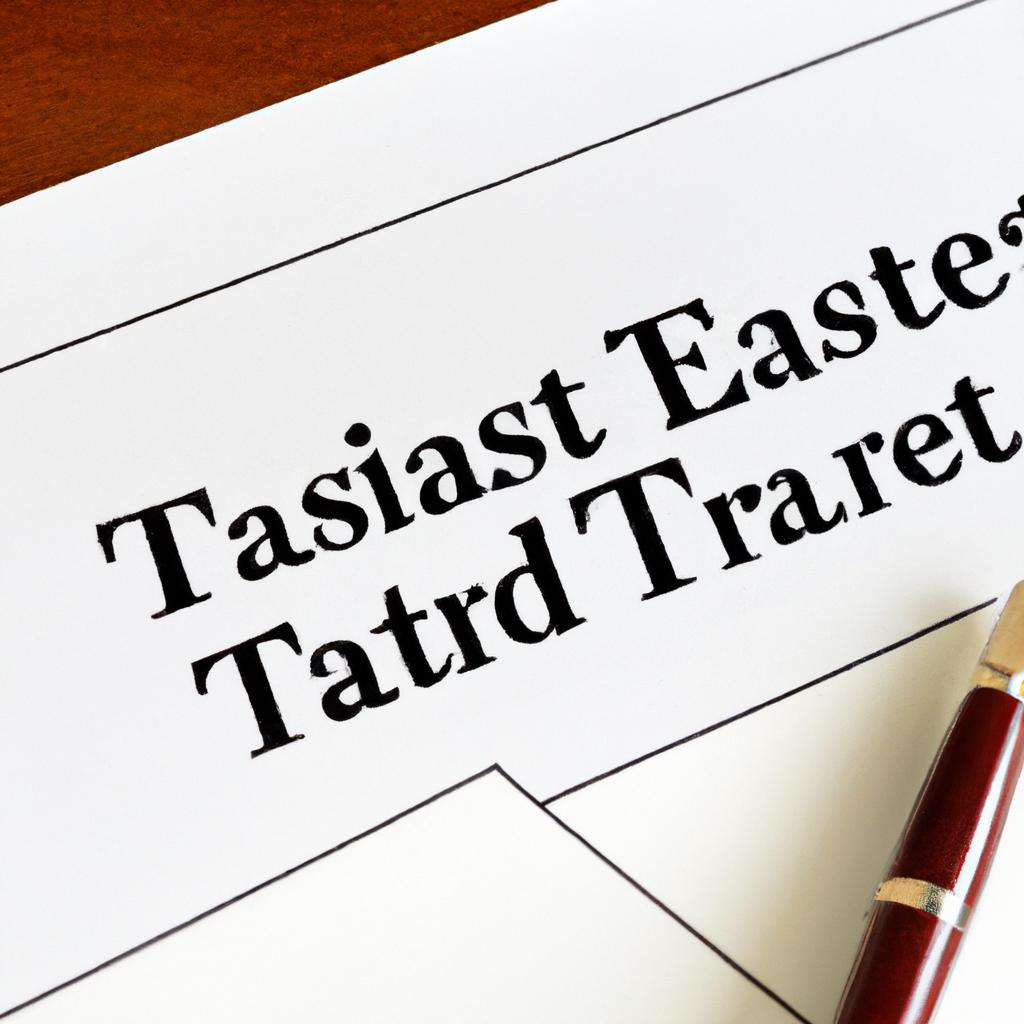As seasoned professionals in the realm of estate planning, probate, elder law, Wills, and trusts, the concept of a trustee holds significant importance in our legal practice at Morgan Legal Group. To the uninitiated, the role of a trustee may seem shrouded in mystery and complexity. In this article, we aim to demystify the fundamental duties and responsibilities of a trustee, shedding light on this crucial element of trust administration. Whether you are a seasoned legal professional or a layperson seeking to understand the intricacies of trusts, read on to unravel the enigma of the trustee and their vital role in safeguarding the assets and interests of beneficiaries.
Understanding the Role of a Trustee in Estate Planning
When establishing a trust, it’s essential to understand the role of a trustee in estate planning. A trustee is the person or entity responsible for managing the trust assets and carrying out the wishes outlined in the trust document. This individual plays a vital role in overseeing the distribution of assets to beneficiaries according to the terms of the trust.
A trustee must act in the best interests of the trust beneficiaries, adhere to the instructions set forth in the trust document, and fulfill their fiduciary duties with integrity and diligence. The trustee is tasked with making important decisions regarding investment strategies, tax planning, and asset allocation. It is crucial to choose a trustee who is competent, trustworthy, and capable of fulfilling their responsibilities in accordance with the law.

Key Responsibilities and Duties of a Trustee
As a trustee of a trust, you have a crucial role in managing and overseeing the assets and affairs of the trust for the benefit of the beneficiaries. Some include:
- Administering the Trust: This involves managing the trust assets, making investment decisions, and distributing income and principal to the beneficiaries according to the terms of the trust.
- Acting in the Best Interests of the Beneficiaries: Trustees have a fiduciary duty to act in the best interests of the beneficiaries, putting their needs above their own, and avoiding conflicts of interest.
- Maintaining Trust Records: Trustees must keep accurate records of all trust transactions, including investments, distributions, and any communication with beneficiaries.
Being a trustee requires a high level of integrity, diligence, and attention to detail. It is a position of trust and responsibility, and trustees must always act prudently and in accordance with the law to protect the interests of the trust and its beneficiaries.

Choosing the Right Trustee for Your Trust
When it comes to choosing the right trustee for your trust, it is essential to select someone who is trustworthy, responsible, and capable of managing the assets in the trust. The trustee plays a crucial role in ensuring that the terms of the trust are carried out according to your wishes and the best interests of the beneficiaries.
- One key consideration in selecting a trustee is their financial management skills and experience in handling complex financial matters.
- Another important factor to consider is the trustee’s ability to communicate effectively with all parties involved and resolve any potential conflicts that may arise.
Additionally, it is vital to choose a trustee who is dedicated to fulfilling their fiduciary duties and acting in the best interests of the trust beneficiaries. This requires a high level of integrity, honesty, and a strong sense of ethical responsibility.
- Consider appointing a professional trustee, such as a trust company or a lawyer with experience in trust administration, to ensure that the trust is managed effectively and in compliance with state laws and regulations.

Recommended Qualities and Characteristics of an Effective Trustee
Qualities and Characteristics:
- Trustworthy and honest
- Strong communication skills
- Excellent problem-solving abilities
- Attention to detail
Additional Traits to Look For:
- Financial acumen
- Empathy and compassion
- Ability to work well under pressure
- Flexibility and adaptability
Q&A
Q: What is a trustee of a trust?
A: A trustee of a trust is a person or entity that holds legal title to property on behalf of another person or group of people.
Q: What are the responsibilities of a trustee?
A: A trustee is responsible for managing the assets of a trust in accordance with the terms of the trust agreement. This includes investing the assets, distributing income or principal to beneficiaries, and keeping accurate records of all transactions.
Q: How is a trustee different from a beneficiary?
A: A trustee is responsible for managing the assets of a trust, while a beneficiary is the person or group of people who will ultimately benefit from the trust.
Q: Can a trustee be a beneficiary of the trust?
A: Yes, it is possible for a trustee to also be a beneficiary of the trust. However, there are certain legal restrictions in place to prevent conflicts of interest.
Q: How is a trustee selected?
A: The trustee is typically chosen by the creator of the trust when the trust is established. This decision is often based on factors such as trustworthiness, financial expertise, and willingness to take on the responsibilities of a trustee.
To Conclude
In conclusion, understanding the role of a trustee in a trust is crucial for ensuring the proper administration and distribution of assets to beneficiaries. As the fiduciary responsible for managing the trust, trustees play a vital role in upholding the wishes of the grantor and acting in the best interests of all parties involved. By fulfilling their duties with diligence and integrity, trustees can help ensure the long-term success and stability of the trust. So next time you hear the term “trustee,” remember the important role they play in the world of trusts and estates.












